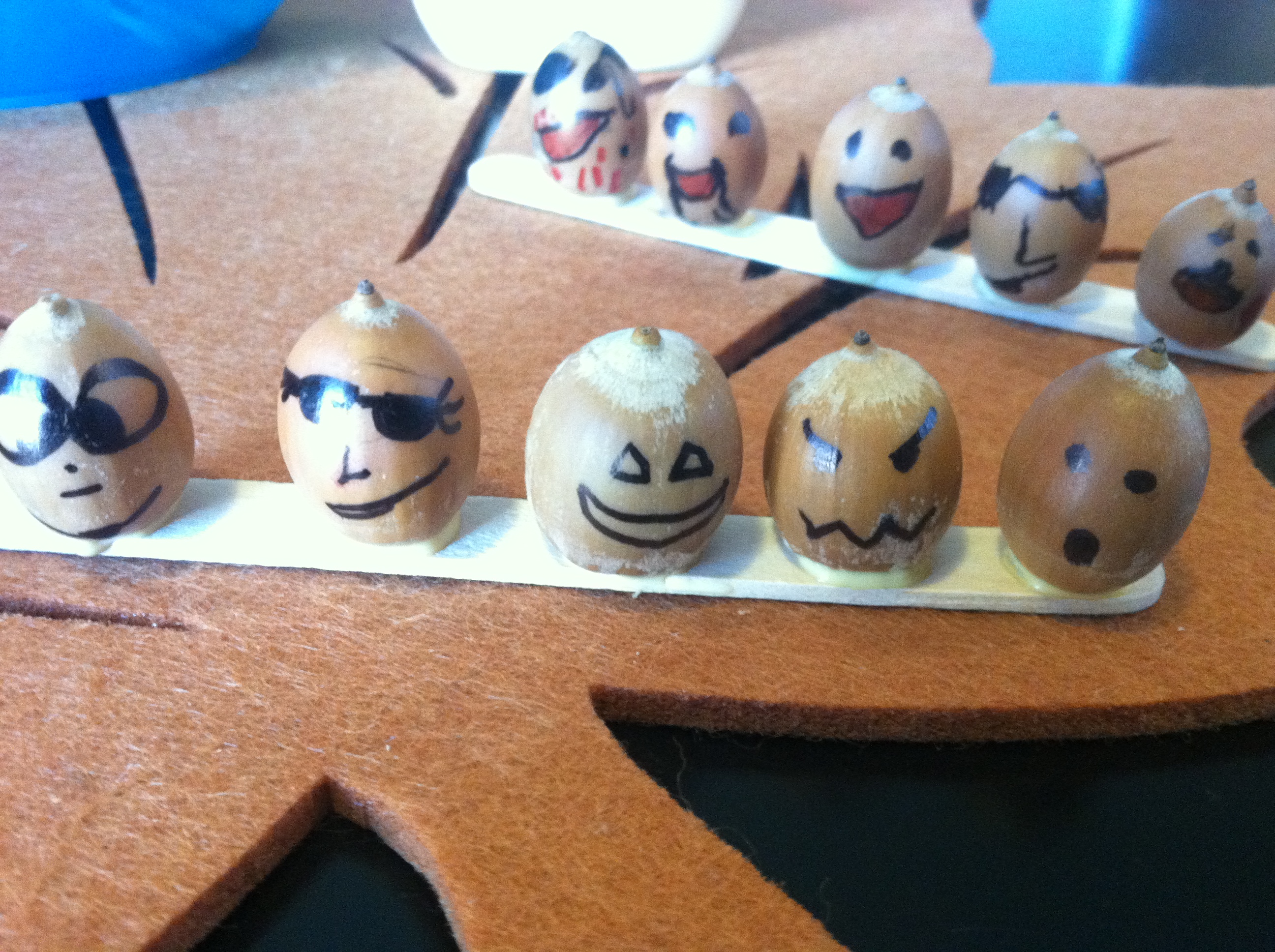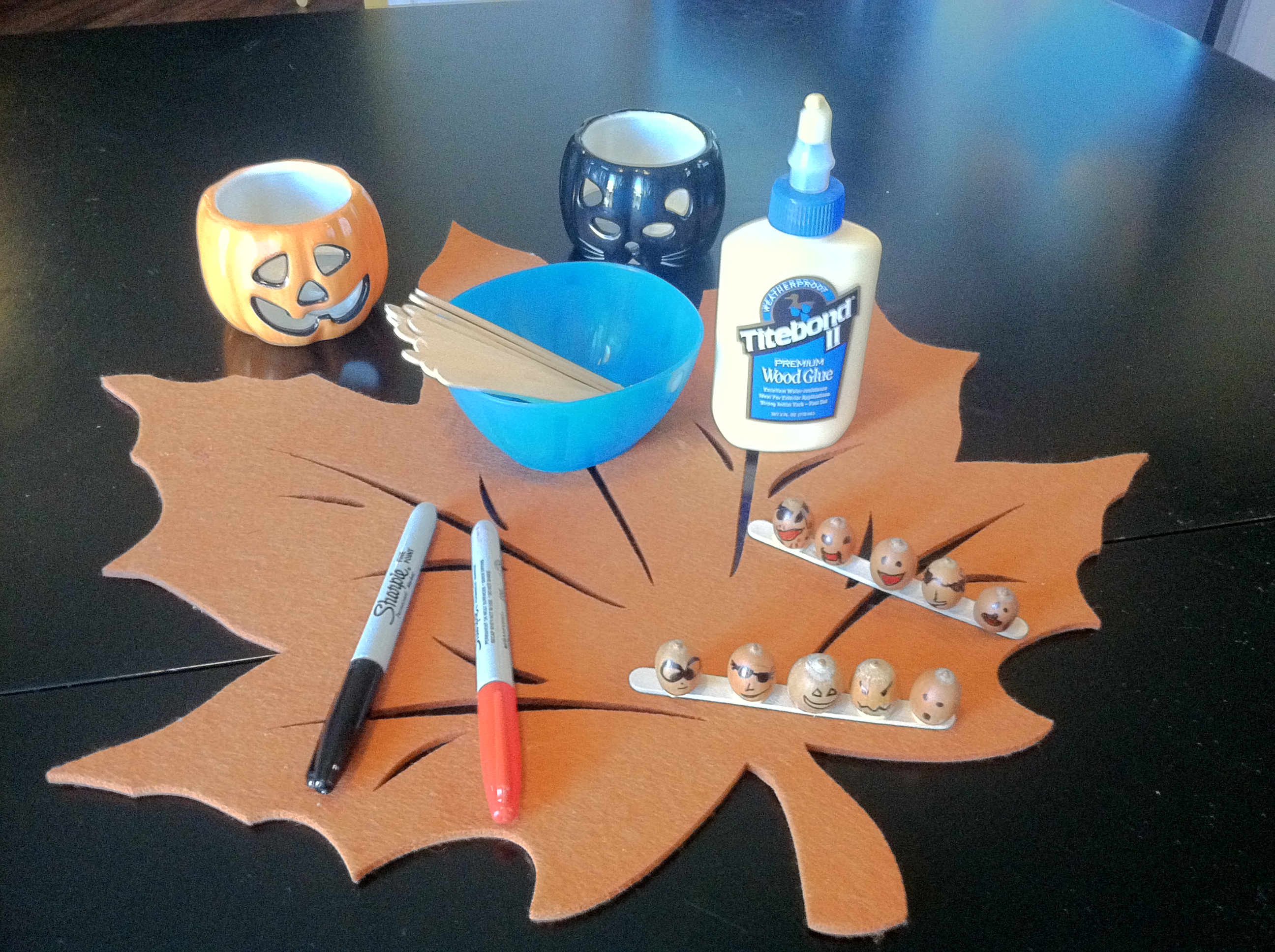
By Jennifer Monahan, MA, CCC/SLP, Augmentative Communication Specialist
About a month ago I enjoyed an afternoon excursion, with my son Everett (age 5) to hear a local jazz band playing an outdoor concert. While the music was certainly entertaining, my son quickly discovered that the trees all around us were dropping acorns and the focus of our afternoon excursion suddenly became….acorn collecting! As any busy mom will tell you, this is why we carry large purses! For the collecting of miscellaneous toy cars, bouncy balls, tiny snacks, band-aids, and…….acorns?
Fun with Acorns
Everett took great pride in the number of acorns he collected that day. When we returned home, we promptly dumped my purse and began filling a bowl with his newly found “treasure.” As a kindergartner, he is learning his numbers, and so was quite eager to count his treasure. With a little help we discovered that he had 52 acorns total!
Since that time, our acorn collection has been transformed a bit! With Halloween approaching at the end of the month, we decided to use our acorns to create some unique table art. We began by selecting our favorite acorns, and then used permanent markers to draw faces on each one. We took time to discuss the different feelings (happy, sad, scary, silly, cool) that each acorn might need. We then used glue to attach a row of acorns to a wooden Popsicle stick. My son was delighted with his creation!
 Creating
Creating
As a speech and language pathologist and mother, I’ve also observed what a wonderful “conversation piece” this simple activity has become for my son.
Not only did he use a wide variety of words while making our creation (counting words, color words, emotion words, core words such as “help me”, “I want to do it”, “put it on/take it off, etc”) he has also had fun answering questions and telling visitors about what he made.
These same conversations can be elicited with anyone using augmentative communication devices, as well! If your child or student has trouble with the fine motor tasks involved with this craft, have them use their device to direct a brother or sister, grandparent or friend, to help them make one.
Here are some examples of how it might sound, depending on the level of language your child/student is using:
Single Word Level: “silly” Two Word Level: “make silly” Three Word Level: “make silly face”
I find that there are endless opportunities each day for us to pause and let our children experience something fun and new. It’s these natural opportunities that often create the best language learning experiences, and serve as excellent “conversation” pieces for the days and weeks that follow.
Stories and Strategies fo...
